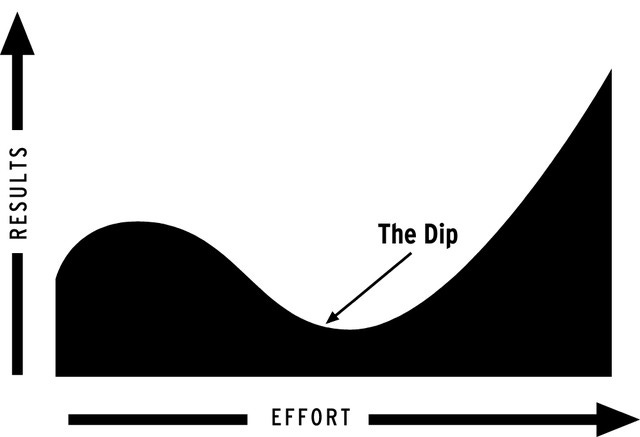Frontiers Newsletter July'17: Improving Your Ability to Learn
Hey Hey, My My... Are You Ok?
Hey John,
This month is crazy. Maybe it's because I'm gearing up for the birth of our second child. Any day now.
(I'd be out of action for the first two weeks of August. Please email me your queries after the 15th of Aug.)
Three Things That I'm Up To:
1. The Difficult Conversations In Therapy (DCT) Clinical Trial for Therapists:
After some challenges with our ethics committee, we are now in the middle of Round 3 of the Difficult Conversations in Therapy (DCT).
The DCT team (Sharon Lu, Geoffrey Tan, Scott Miller) are so impressed by the persistence of the participants all over the globe. Mind you, the trials are not a walk in the park. It's uncomfortable. It's stretches the learner.
I also want to use this chance to say a big thank you to Shaun Ng, who volunteered to lend a hand in many of our administrative work. You have to understand, we are not operating this research from the walls of academia. Sharon's a psychologist with multiple duties; Geoff's a psychiatrist swamped with patient load and other research; and Scott, as you know, is all over the world teaching.
Anything worth doing, is not executable by an individual. I'm so thankful for the gift of these wonderful and highly intelligent people.
2. Improving Learning:
I'm sure a poor learner in my schooling years. I had to spend five years instead of four in my secondary school. In my tertiary education in polytechnic, I studied Business Administration (PR and advertising). I was nearly awarded a Ph.D.—Poly Halfway Dropout! Thankfully, I scrapped by, went to army (mandated) for 2.5 years, and leaped into Psychology.
Luckily, my mother held on to this belief about me when I wasn't doing so well in school: "He's a late bloomer."
So at age 39, I'm asking myself this question:
What do I need to improve on, that has leverage on what I do as a practitioner/mentor/teacher?
Here's what I've come up last week:
IMPROVE MY ABILTY TO LEARN.
I needed to break that down.
1. Improve my memory ability
2. Improve my reading speed, without compromising my comprehension.
I'd be posting some of my experiments in the next blog, and why I'm doing this. The findings are intriguing!
3. The First Kiss: Undoing the Intake Model and Igniting First Sessions in Psychotherapy
For the past two years, I've been working on this book. It's an attempt to an intake model of first sessions—challenging our scared cows— and show what it takes to engage our clients from the word go.
It's an unabashingly "How-To" book.
Thanks to my editor Shawn Mahalik from Asymmetrical Press , I've now re-writing my second draft. Man, it's painful.
Stealing Warren Beaty lines, writing is like vomiting. But I'd feel better once I finally throw up.
July Reading List:
Maybe it's a recency bias, but the four books in my July readings are stellar. These books ended up being outside of psychotherapy. I've found it really useful to read stuff outside of our field.
1. The Dip, by Seth Godin:
I can't believe I haven't read this book before. Though it was written 10 years ago, I'd bet it's going to be a classic, if not already.
The big idea of this book goes something like this: Also anything worth doing is control is controlled by the dip. And we must not be surprised by it. In fact, we must expect it.
We must also learn to differentiate the dip versus the cul-de-sac (dead ends). We have to quit the latter; as early as possible.
Any one of you that is involved in implementing any good ideas in your company needs to read this. When you pursue anything worth, you are bound to face "The Dip".
Reminds me of the Stoics idea of "The Obstacle is the Way." (see Ryan Holiday)
2. You Inc., by Harry Beckwith & Cristine Clifford:
I don't think I would have picked this book up if not for Derek Siver's recommendation.
This book challenges assumptions about marketing. I highly recommend this for folks in private practice, or anyone who is trying to convey a more authethic version of yourself to the people you work with.
The chapters are short and to the point. It's addresses specific issues, like how to say a personal "thank you" to clients, how to dress when you have a speaking engagement, etc.
One of the most important chapter addresses this: "What do clients value the most?" (p. 149).
Hint: It is not about your skills level.
3. The Half-Life of Facts by Samuel Arbesman:
Have you wandered why parenting advice differ from one generation to the next?
Or do you notice that meat was once good for you, then it became bad for you, then good again?
(Same goes for red wine and coffee.)
Part of it is due to what Samuel Arbesman calls the "half-life of facts."
Facts change all the time. In his book, Arbesman points out the half-life of facts (in years):
Physics = 13.7
Economics = 9.38
Math = 9.17
History = 7.13
Religion = 8.76
Now make a guess: how long does it take for half of a subject's knowledge to be overturned in Psychology.
Psychology = 7.15 yrs.
It reminds me of a related concept in the philosophy of science called the Pessimistic meta-induction theory. What a strange name, but it goes something like this: 10yrs from now, everything we know now is wrong.
A while ago I blogged about the topic on "What have you changed your mind?"
Arbesman advice is useful here: We shouldn't be surprised when facts change. In fact, we should expect it.
In an interview with Dave Asprey on what drives him, polymath and one of the internet pioneer Kevin Kelly said, "Nothing gives me more joy than figuring out that I was wrong... to be surprised."
If you wish to get a snippet, watch Arbesman's TedX talk. His examples are exactly the same as the ones in the book.
4. Perennial Seller by Ryan Holiday (2017):
I was excited to hear that Ryan Holiday has a new book released just this month. He is one of my favorite authors. From his writings, you know this is someone devoted to his craft as a writer.
This book is about how ideas and products stand the test of time. I bet this book is going to be a perennial seller.
One of the biggest idea that made me change my mind is this:
Do not see marketing as a separate part of the creative process. This completely goes against the grain for me.
An aside that I thought therapists in this list would appreciate, is based on a quote from author, Neil Gaiman. He's talking about how we treat feedback (see Box below):
"Remember: When people tell you something's wrong for them, they almost always right.
When people tell you exactly what they think is wrong and how to fix it, they are almost always wrong."
~ Author, Neil Gaiman
FROM MY DESK:
1. Stop Talking, and Start Performing
2. Here's a short post from my other blog, Full Circles: Reflections on Living:
What is the Opposite of Play? (It's Not Work)
NEW RELEASE
These books are finally out in print!


I've yet to receive my copy of Cycle of Excellence. For now, I highly recommend two chapters from the FIT book by Robbie Wagner, and the other by Randy Moss and Venessa Mousavisadeh. Both addresses the issues of implementation at an agency level.
Here's the two chapters we've got in there:
Chow, D. (2017). The practice and the practical: Pushing your clinical effectiveness to the next level. In D. Prescott, C. Maeschalck, & S. D. Miller (Eds.), Reaching for Excellence: Feedback-Informed Treatment in Practice: APA.
Miller, S. D., Hubble, M., & Chow, D. (2017). Professional development: An Oxymoron? In T. Rousmaniere, R. K. Goodyear, S. D. Miller, & B. Wampold (Eds.), The Cycle of Excellence: Using Deliberate Practice in Supervision, Training, and Independent Practice Wiley Press.
~
Website Revamp
With the help of Daniel Martis, I've recently revamped my website. Please take a look. Let me know what you think about it, or what needs changing.
Thanks a million.
Til then, please stay in touch. I hate marketing, but I love connecting. Love to hear back from you, if you have any questions or comments.
Reach me at daryl@darylchow.com
p/s: I know you are not paying anything to read these content. But I want to sincerely thank you for giving your time and attention to read and share these.
Blessings,
Daryl Chow, Ph.D.
Senior Associate & Trainer, International Center for Clinical Excellence (ICCE);
Endorsed Counselling Psychologist & Board Approved Supervisor (Aus),
Specialist Psychological Outreach Team (SPOT) @ Henry Street Centre, Fremantle, W Australia.
Senior Psychologist (on locum),
Institute of Mental Health, Singapore.
You are receiving this because you attended a workshop/consultancy/ supervision with me in recent times, or you are a subscriber to the Frontiers of Professional Development (FPD) blog. I want to keep you up to date on some developments that you will find useful. You might also be interested to check out the previous FPD Newsletters for useful and practical resources. Join our Facebook group to connect. Please spread the love to others who are like you—devoted to your professional development.
Needless to say, please unsubscribe if this is not for you.













